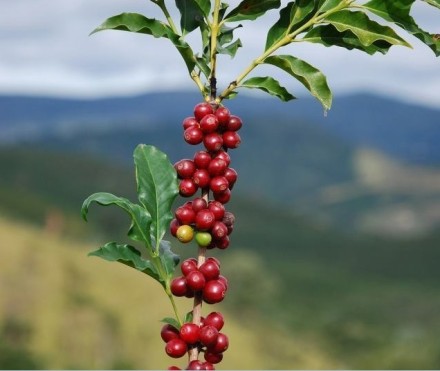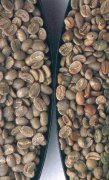10 steps for testing high-quality coffee
1. Prepare a little (about 10 grams) freshly roasted and immediately ground coffee in a small cup.
2. Smell it and see its dry fragrance.
3. Pour in the hot water of about 95 degrees Celsius. Do not boil and immediately pour it into the coffee powder. Let it stand for about half a minute and then pour into the coffee powder after the temperature drops slightly.
4. Smell the aroma coming from the rising steam.
5. Leave the cup sample for three to five minutes and then stir with a long spoon.
6. Smell and evaluate the aroma and concentration of steam while stirring.
7. Pick up the coffee grounds floating on the surface and throw them away.
8. Scoop a tablespoon of coffee without residue into the mouth and sip it straight to the root of the tongue ~ feel the smell ~ don't swallow it in a hurry ~ let the coffee flow in the mouth and feel the consistency of the tongue ~ whether the taste is still strong before swallowing it into the throat.
9. Slide your tongue to the upper edge of the mouth to feel its texture and taste.
10. Stay in the mouth for three to five seconds and then spit it out. Whether the aftertaste remains or even turns sweet.

Important Notice :
前街咖啡 FrontStreet Coffee has moved to new addredd:
FrontStreet Coffee Address: 315,Donghua East Road,GuangZhou
Tel:020 38364473
- Prev

Coffee basics Common sense "good coffee" should be the standard
Everyone's taste is different, the taste of coffee preferences also vary from person to person, how can you say what is good, what is not good? How to judge? The taste of coffee is determined by the combination of sour and bitter taste, aroma concentration, astringency and mellow, sometimes with alcohol, mildew, fermentation and so on. For a person who doesn't like sour coffee, even a good cup of sour coffee is a good choice.
- Next

Boutique Coffee basic knowledge Coffee Sauce
Coffee with coffee (1)-water water, can be divided into soft water and hard water. After the conversion of the amount of water dissolved in water, the amount of water is less than that of hard water. Ordinary mineral water is hard water containing salt, etc., because hard water releases caffeine and tannins, which greatly reduces the taste of coffee. Ordinary tap water can be used as hot water, but in the morning
Related
- Beginners will see the "Coffee pull flower" guide!
- What is the difference between ice blog purified milk and ordinary milk coffee?
- Why is the Philippines the largest producer of crops in Liberia?
- For coffee extraction, should the fine powder be retained?
- How does extracted espresso fill pressed powder? How much strength does it take to press the powder?
- How to make jasmine cold extract coffee? Is the jasmine + latte good?
- Will this little toy really make the coffee taste better? How does Lily Drip affect coffee extraction?
- Will the action of slapping the filter cup also affect coffee extraction?
- What's the difference between powder-to-water ratio and powder-to-liquid ratio?
- What is the Ethiopian local species? What does it have to do with Heirloom native species?

